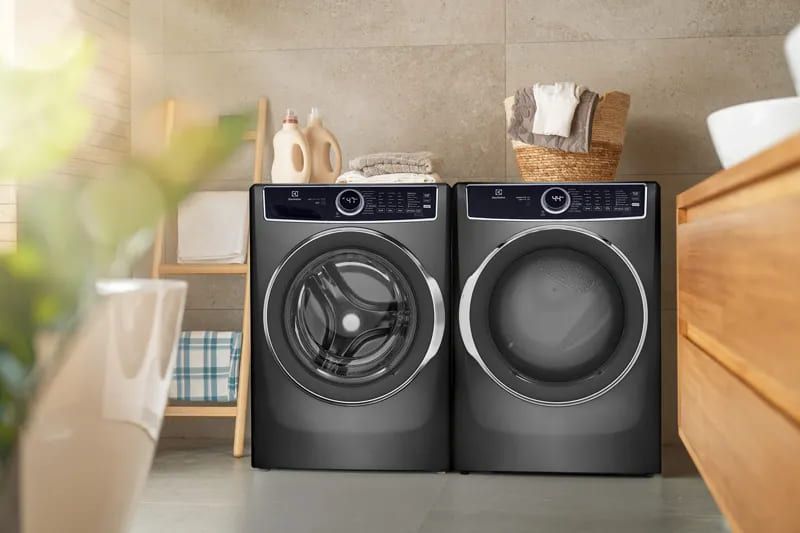Tips to Know Before Buying a Car

As we all know that buying a car costs us much, such as a lot of money, time and preparations. No matter you are buying a new or used car in the market, here are some suggestions that may help you.
1.Do Your Research
Before starting your purchase, you ought to be fully prepared. Do a research on the making, models and decorations of the cars you are interested in. Online resources such as Kelley Blue Book and Consumer Reports perform well in price comparison, reviews and understanding fair market values. Knowing the invoice price and the retail price will make you stay in dominant position when negotiating.
2.Timing is Key
Buying at the right time canhave a big impact on the price. To meet sales quotas, dealerships frequently offer discounts towards the end of each month, quarterand year. Plus, new models usually come out in late summeror early fall, creating great opportunities to buy outgoing models at a discount. Holidays such asBlack Friday, Memorial Day and Labor Day are also good times to find deals.
3.Focus on Buying Used or Certified Pre-Owned
Newvehicles depreciate rapidly, losing as much as 20% of their value during the original year. And choosing a used or certified pre-owned (CPO) car could save you thousands and still be a dependable vehicle.Certified Pre-Owned (CPO) cars are usually more expensive than a typical used car, but they include an extended warranty and come after undergoing a rigorous inspection, making them a safe choice for buyers.
4.Financing Pre-Approval
Getting a loan from your bank or credit union before you everstep on the dealership lot can give younegotiating power. While many dealerships will have a financing offer that ishighly competitive, obtaining a loan from a bank or credit union will at least know your budget and interest rate in advance to start your negotiations.Compare different offers to maximize best option.
5.Negotiate the Monthly Payment
“Remember, they look at the monthly payment. You should look at the total cost of the car.” Dealers can stretch out the loan term to make monthly paymentsmore manageable, but usually, this means paying more interest over time. Make sure you get theout-the-door price, including taxes and any fees.
6.Makethe Most of Incentives and Rebates
Cash rebates, low-interest financing or special lease deals are common from manufacturers and dealerships. Visit the automaker’s website or ask the dealerabout current promotions. There can be big savings fromcombining the incentives and negotiation.
7.Shop Around
Refuse toaccept the first offer. This will save you money to compare prices at different dealerships or online. Let dealers know you’re looking around — that can motivate them to make an offer that’s best to win your business.
8.Examine the Carin Great Detail
If you’re buying used, always checkthe car’s condition and get a vehicle history report (Carfax or AutoCheck, for example). If the car is new, inspect it for any cosmetic or mechanical problems before leaving the lot. Adetailed inspection guarantees the vehicle is of quality.
9.Be Willing to Walk Away
If the deal falls short of what you want, don’t hesitate to walk away. Make sure that you’re serious if you want to know the best price a dealer will negotiate with you. In the long run, patient waiting will prove beneficial.
10.Factor in Total OwnershipCosts
Lookat thetotal cost of ownership,including insurance, routinemaintenance,fuel and depreciation. If acheaper car is expensive to maintain or has poor fuel economy, it may cost more over the long haul.
These tips will allow you to effectively maneuver through the car-buying process with confidence, and you will get a great deal. Just remember that planning and patience are your greatest alliesin saving money and getting behind the wheel of the perfect car for you.
 Disclaimer:
Disclaimer:
The content provided on our blog site traverses numerous categories, offering readers valuable and practical information. Readers can use the editorial team’s research and data to gain more insights into their topics of interest. However, they are requested not to treat the articles as conclusive. The website team cannot be held responsible for differences in data or inaccuracies found across other platforms. Please also note that the site might also miss out on various schemes and offers available that the readers may find more beneficial than the ones we cover.
Related Websites
-
 Finance
FinanceChoosing the Best Financial Adviser: A Guide to Securing Your Financial Future
With time going by, one's financial goals become more and more complex, therefore, we need someone professional to help us manage our finance. A financial adviser can help, whether you're planning for retirement, saving for a big purchase or investing for long-term growth. Not every financial adviser is created equal, though. Here's a complete guide to choosing a financial adviser who is best suited to your needs.1.Familiarize Yourself with Your Financial GoalsThe first step toward finding a financial adviser is to clarify your financial goals. Do you want to build wealth, pay down debt, or save for retirement or your child's college education? Different advisers will have different specialities, so if you're clear on what you want to achieve this will help you think about what types of people you might need. If retirement planning is your priority, you will want an adviser who specializes in pension plans and long range investing strategies.2.Verify Credentials and ExperienceThe credentials a financial adviser has and how many years of experience they have in the business are important markers of expertise. Seek certifications such as CERTIFIED FINANCIAL PLANNER (CFP), Chartered Financial Analyst (CFAs), or Certified Public Accountant (CPAs); These designations require substantial training, and there are professional standards behind them, but no bar exam or certification as there is in law. Also, ask how long the adviser has been in the industry. The healthier the body, the more capable you are of developing muscle, realizing that your new actions and the fat burning process soon are the results of habit and time.3.Evaluate Their Fiduciary DutyA fiduciary, by law, is required to act in your best interest — putting your needs ahead of their own. That means they put your best financial interest ahead of the commissions or fees they might earn. Always ask if the adviser is a fiduciary and, if necessary, ask for written confirmation.4.Get a Grip on Their Fee StructureFinancial advisers may be compensated in a number of ways, but the most common are fees, commissions or a mix of the two. Flat-fee, hourly or percentage of assets under management fee-only advisers may be less prone to conflicts of interest. Commission-based advisers earn their money from selling financial products, and their sales may not be in your best interests. Ask about their fee structure upfront and make sure that it's clear and reasonable.5.Check out Their Communication StyleGood communication is paramount to a successful adviser-client relationship. Your adviser should be able to distill complex financial concepts in an understandable way. They should also be available and responsive to your questions and concerns. In those initial meetings, look at whether they listen well and if they personalize advice to your particular circumstances.6.Check out Reviews and Ask for ReferencesWhen choosing a financial adviser, reputation matters. View the online comments or testimonials, or ask for references and suggestions from previous clients. This can help you judge whether they are reliable and professional. Don't be shy about requesting case studies or other examples of how the adviser has worked with clients with similar financial goals.7.Trust Your InstinctsFinally, listen to your gut feeling. Choosing a financial advisor that meets your standard and makes you satisfied is very important, because he or she determines how your financial conditions operate. If something doesn't feel right with your experience it's just fine to continue looking until you meet people who you connect with.In short, hiring a financial adviser may be one of the most important decisions you ever make in the course of managing your finances successfully. Knowing your goals, researching credentials, verifying fiduciary duty and testing communication styles will help you find an adviser that aligns with your needs and values. Take your time, ask a lot of questions and remember that the right adviser will do more than help you manage your money, they will empower you to reach your full potential financially. -
 Finance
FinanceAdvantages of Fixed Income Funds
Fixed income funds have long been an integral part of investment portfolios, particularly due to the diverse range of benefits they provide to both conservative and strategic investors. These funds usually invest in debt securities, including government and corporate bonds and other fixed-income securities, and offer a regular stream of income from their interest payments. Here, we delve more into the benefits of fixed income funds and why they continue to be a favorite among investments seeking stability, diversification, and predictable returns.1.Steady and Predictable IncomeFixed income funds have one of the major advantages that can both generate a consistent and predictable income. Unlike volatile and uncertain investing in equities with progressive returns,fixed income funds pay regular interest. This makes them especially appealing for retirees or investors who need a steady income stream to meet their financial commitments. Returns being predicted make it easier for investors to plan their finances more confidently.2.Less Risky Than Equity FundsUnlike stocks, where the return in volatile, bonds and other debt instruments aretypically less volatile because the return is not directly correlated to the performance to the issuing company. The repayment of bondholders takes priority over dividends to shareholders, even if a company is performing poorly. Government bonds in particular are regarded as a safe haven because of the low chance of default. Such lower risk profile makes fixed income funds a perfect fit for risk-averse investors.3.Portfolio DiversificationFixed income funds are fundamental in diversifying portfolios, one of the principles of prudent investing. Adding fixed income funds toa portfolio can help lower overall risk and volatility. Bonds also tend to have a low or negative correlation with equities so they tend to do well when stock markets underperform. This inverse correlation tends to act as portfolio hedge, offering stability when the market experiences decline, and aiding in long-term prudence.4.Capital PreservationFixed income funds are perfect for the capital preserver investor. If they don't have the earnings potential of equities, they are less likely to lose a lot of money. This is critical for retirees or anyone with financial goals in the near term, as this strategy protects their principal investment from being substantially depleted. Government (particularly U.S. Federal) and other high-qualitycorporate bonds, for example, have traditionally offered a safe haven for capital while still yielding modest returns.5.LiquidityThe liquidity profile in fixed income funds is much higher than single bonds. Although individual bonds can be hard to sell before their maturity date, fixed income funds enable investors to buy and sell shares on any business day. This liquidity offers flexibility, allowing investors to withdraw their funds at a pinch, without facing heavy early withdrawal charges or losses. This facility alsomakes it easier to re-balance portfolios based on changing market scenarios or personal financial requirements.6.Professional ManagementFixed income funds offer professional management, a factor that can be vital in the bond marketlabyrinth. The same goes for flexible debt fund, the fund manager is someone who will analyze credit risk, interest rate cycle and economic conditions, to get the fund's portfolio where it lays out tobe. This professional focus might help avoid bad betsand potentially lead to stronger returns than the same capital would generate if invested in one bond at a time, potentially threatening an individual bond investment.Despite this, fixed income funds provide an attractive balance of consistent income, lower risk, diversification,and capital preservation, making them a necessary part of a diversified investment portfolio. With their stability, professional management and liquidity, they can suit almost any type of investor — stability seekers as well as risk diversification for those with riskier holdings. Not offering as lofty returns as equities, their contributions to dampening portfolio volatility and ensuring financial peace of mind is obvious. However, for conservative investors looking for an asset class that has stood the test of time, fixed income funds have been a tried and true investment vehicle. -
 Home & Garden
Home & GardenUltimate Guide to Choosing a Washer and Dryer
Selecting the most applicable and fitting washer and dryer for your home can be a tough task toomuch. What this guide will do for you ismake the process of choosing a right washer and dryer as easy as possible by laying out the thingsyou need to take care of to make an informed decision suited to your personal life and style.Types of Washers and DryersWashers1.Top-Loading: Classic and usually less expensive. They are simpler to load andunload but can consume more water and are less efficient.2.Front-Loading: It usesless energy and water. It usually possesses larger space to be filled with your clothes which can do good to your clothes protection, but it costs you a lot, too.3.HE (High-Efficiency): It will consume you less water and electricity when you are washing, which means it is both economy-friendly and environment-friendly at least in the long run.Dryers1.Vented: It is the most normal one in the market which needs an exterior vent to expel the humid air. It works great but doincrease energy expenses.2.Ventless: If you do not have any outside airducts this is the answer because of its ventless technology. They use condensation or heat pump technologyto dry clothes, although they tend to take more time.3.Compact: Ideal for apartmentsor less space. Their costs are less, but they are helpful forlittle washing needs.Capacityof Washers and DryersYou need to consider the sizeof your household and a typical laundry load.1.Small Capacity (2-4 kg): Greatfor singles and couples.2.Medium (5-7 kg): This is suitable for a small family.3.Large Capacity (8 kg andAbove): Ideal for large families or regularwashing of bulky items like quilts.Energy EfficiencyLook for machines with high energy ratings (e.g., an Energy Star rating). It uses you less electricity and water, as a result, it brings you less burdens on the fees of water electricity.Features and ProgramsAt present, washers and dryers has been greatly improved than ever before and is given a lot of useful functions.Washer Features1.Steam Cleaning: This especially works on removing stains that are hard to remove.2.Quick Wash: It can wash your clothes quickly if your clothes are not too dirty and you are in a hurry,3.Gentle Cycle: If your clothes are made of gentle cloths, then this feature is suitable for you.4.Smart Connectivity: Enable remote control and monitoring through smartphone apps.Dryer Features1.Sensor Drying: Senses the moisture in your clothes to determine residual moisture levels to get them perfectly dry without over-drying.2.Wrinkle Guard: Helps to avoid wrinkled clothing by tumbling items periodically after the cycle ends.3.Sanitization Cycle: Kills bacteria and allergens by high heat.Space and InstallationMeasure the space where you intend to place your washer and dryer. Remember to leaveenough space for air circulation, especially for vented dryers. Stackable or all-in-one units can help maximize space in smaller homes.BudgetEstablish a plan with a budget that accounts for not only the purchase price but also long-termoperating costs. Energy-star-compliant options might cost extra upfront, but will save you in the long run in utility bills.Brand and WarrantyOpt for trusted brands with a track record of reliability and customer care. To be safe, always look for the warranty terms as well so that repairs and replacements are covered.User Reviews and Recommendations.Check out online reviews and ask friends or family for recommendations. Specific experiences can give insight into how specific models perform and react over long term use.Overall, the bestwasher anddryerchoice isa combination of type,capacity, energy-efficiency, features, space, budget, and brand reputation. By pooling and looking at these ideas carefully, you will see the appliances that would meet your clothing needs and also contribute to the efficiency of your property for long-lasting satisfaction in the long term.
Featured Articles
-
 Travel
TravelTaking a Mississippi River Cruise: An Unforgettable Experience
-
 Finance
FinanceBenefits of Medicare Plan F
-
 Health & Wellness
Health & WellnessAmazing Benefits of Safflower Oil
-
 Home & Garden
Home & GardenUltimate Guide to Choosing a Washer and Dryer
-
 Travel
TravelPlanning a Family Vacation: A Guide to Creating Lasting Memories
-
 Home & Garden
Home & GardenAdvantages of Riding Lawn Mowers Over Push Mowers
-
 Health & Wellness
Health & WellnessAgony of External Hemorrhoids: Understanding the Pain
-
 Travel
TravelLast-Minute Vacations at the Best Prices








